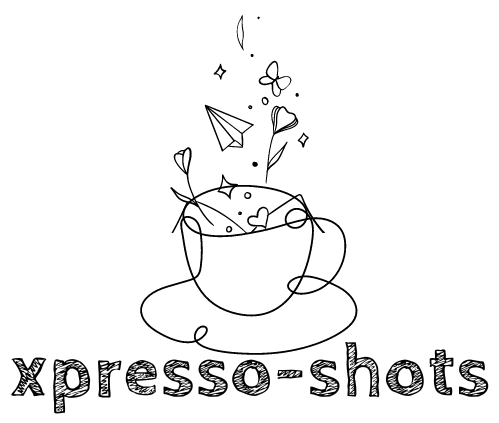Introduction
Decision making is basically making choices. It’s the process of picking between different options. Every day, from small things like what to wear to bigger things like career choices, we’re making decisions.
Table of Contents
Why is Decision Making Important?
Decision making is crucial because it shapes our lives. The choices we make affect our happiness, success, and well-being. Whether it’s choosing a job, making financial decisions, or even deciding what to eat, each decision has an impact on our present and future.
Importance of Decision Making in Everyday Life
In our daily lives, decision making is like a compass. It guides us through various situations. Good decision making ensures we make choices aligned with our goals and values. It helps us avoid regrets and move towards a more fulfilling life.
Key Benefits of Decision Making
| 1. Clarity in Choic | 2. Weighing Pros and Cons |
| Being crystal clear about our options is crucial. When we have a good understanding of what’s on the table, we can make decisions that truly fit our needs. This clarity not only simplifies the decision-making process but also reduces the stress that often comes with uncertainty. | A wise approach to decision making involves carefully evaluating the positives and negatives of each option. This method allows us to visualize potential outcomes, making it easier to choose the option that best aligns with our priorities and goals. |
| 3. Trusting Intuition | 4. Making Informed Decisions |
| Our gut feeling can be a valuable guide in decision making. Trusting our instincts, especially when they are backed by experience, adds an extra layer of insight to the process. Sometimes, that inner voice can provide a unique perspective that complements analytical thinking. | Informed decisions are the backbone of effective choices. Gathering relevant information, doing research, and staying informed equip us with the knowledge needed to make sound judgments. Informed decisions combine the power of data with our intuitive understanding, resulting in choices that stand the test of scrutiny. |
10 Models for Effective Choices
- SWOT Analysis:
- Description: Evaluates Strengths, Weaknesses, Opportunities, and Threats to inform strategic decision-making.
- Usage: Common in business planning and organisational strategy.
- Cost-Benefit Analysis:
- Description: Weighs the costs against the benefits of different options to determine the most favorable choice.
- Usage: Widely employed in project management and financial decision-making.
- Decision Matrix:
- Description: A systematic tool that evaluates options based on multiple criteria, assigning scores to facilitate comparison.
- Usage: Useful in complex decision scenarios requiring a quantitative approach.
- Pareto Analysis:
- Description: Focuses on the most significant factors contributing to a decision, emphasizing the “80/20” rule.
- Usage: Prioritizes efforts in problem-solving and resource allocation.
- Six Thinking Hats:
- Description: Edward de Bono’s approach involves considering decisions from six different perspectives, fostering diverse thinking.
- Usage: Promotes creativity and comprehensive analysis in group decision-making.
- The Eisenhower Matrix:
- Description: Categorizes tasks into Urgent/Important, guiding prioritisation and time management.
- Usage: Effective for personal and professional decision-making.
- Scenario Planning:
- Description: Anticipates and plans for different future scenarios, helping organizations prepare for uncertainty.
- Usage: Strategic decision-making in dynamic environments.
- The Cynefin Framework:
- Description: Divides problems into categories (Simple, Complicated, Complex, Chaotic) to guide appropriate decision-making approaches.
- Usage: Useful in understanding the nature of problems and tailoring responses accordingly.
- The OODA Loop (Observe, Orient, Decide, Act):
- Description: Developed for military strategy, it emphasizes rapid decision-making cycles for agility.
- Usage: Applied in dynamic and competitive environments.
- The Decision Tree:
- Description: A graphical representation of decision options and potential outcomes, assisting in risk analysis.
- Usage: Common in finance, project management, and complex decision scenarios
AI and Decision Making
| What | Description |
| Enhancing Analytical Capabilities | AI helps us understand things better by using smart computer programs. These programs can quickly look at lots of information and find important patterns that we might miss using traditional methods. This makes decision-makers smarter because they can use data to make better choices. |
| Predictive Decision Making | AI is like a fortune teller for decisions. It looks at what happened before and predicts what might happen in the future. This helps decision-makers be ready for challenges, spot opportunities, and plan ahead. |
| Streamlining Complex Decision-Making Processes | Sometimes decisions are like big puzzles with many pieces. AI makes it easier by doing some tasks automatically, looking at information fast, and giving quick insights. This makes decisions happen faster and reduces mistakes. |
| Personalized Decision Support | AI is like a personal advisor for decisions. In areas like healthcare, finance, and shopping, it looks at what each person likes and suggests things just for them. This makes decisions feel more tailored to what each person wants. |
| Addressing Decision Fatigue | Decisions can be tiring, especially when they’re repetitive. AI helps by doing those repeat tasks, so people can focus on the important decisions. This not only prevents tiredness but also ensures decisions are better quality. |
| Ethical Considerations in AI-Driven Decision Making | When we use AI, we need to think about what’s right and fair. It’s important to be clear and honest about how AI works. Decision-makers have to think about these values to keep trust and do the right thing. |
How Breakfree Consulting can help
| People Proficiency Services | Operational Excellence Services |
| 1. Customised Learning Programs: Tailored to meet your specific needs, our customized learning programs cover a spectrum of decision-making aspects. From foundational principles to advanced strategies, we ensure that our programs align with your objectives. 2. Decision-Making Workshops: Engage in interactive workshops facilitated by seasoned professionals. Our workshops provide hands-on experiences, practical insights, and collaborative learning environments, equipping you with the skills needed for effective decision-making. 3. Leadership Development: Cultivate decision-making excellence at the leadership level. Our leadership development programs focus on honing the skills required to make informed, strategic, and impactful decisions that drive organizational success. | 1. Data-Driven Decision Strategies: Harness the power of your data with our data-driven decision strategies. We assist in implementing analytical tools and methodologies to ensure that your decisions are grounded in relevant and impactful insights. 2. Strategic Planning and Implementation: Beyond advice, we actively contribute to the strategic planning and implementation phases. Our team collaborates closely to ensure that your decisions are not just theoretical but translate into tangible and sustainable outcomes. 3. Decision Process Optimization: Streamline your decision-making processes with our optimization strategies. From automating routine decisions to enhancing the efficiency of complex choices, we help you optimize every step of your decision journey. 4. Operational Analytics: Leverage analytics to enhance operational efficiency. Our operational analytics services help you make data-informed decisions to streamline processes, reduce costs, and improve overall performance. |
Conclusion
Mastering decision-making is a journey that blends knowledge, skill, and self-awareness. This guide equips you with insights to navigate life’s complexities. Armed with decision science, you embark on shaping your journey through quality choices.


Your point of view caught my eye and was very interesting. Thanks. I have a question for you.
sure, let me know pls